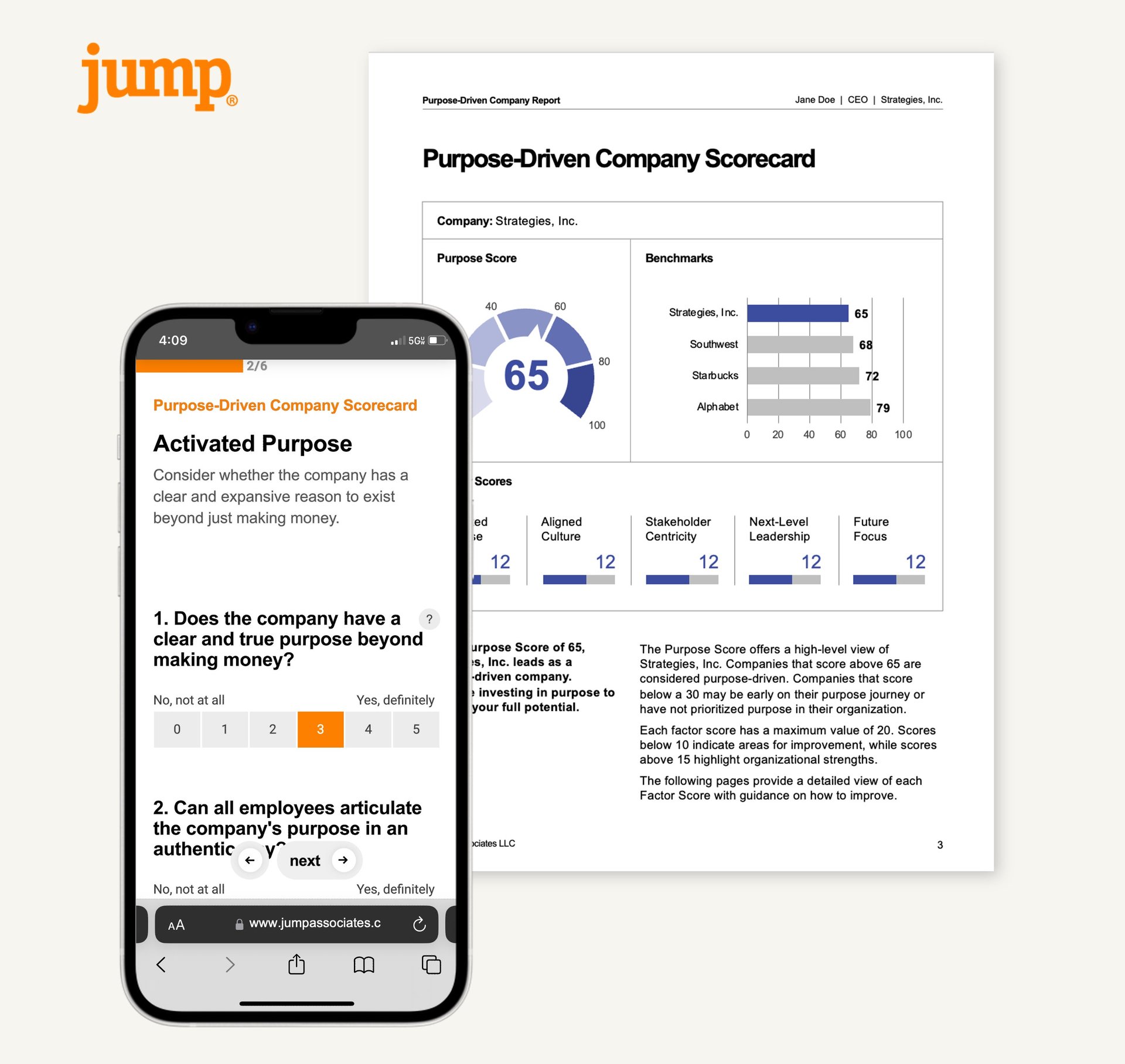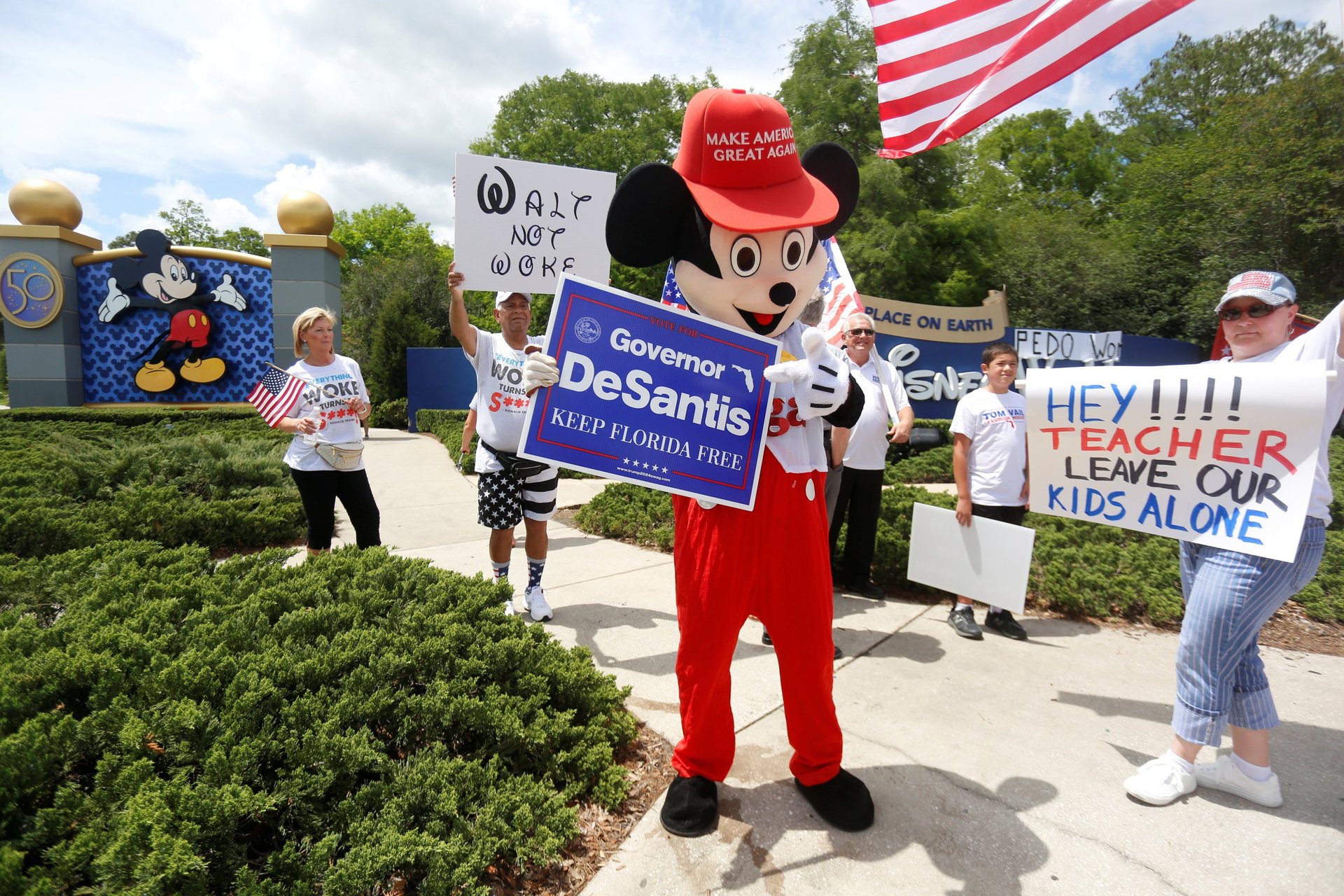Where Alphabet, Disney, and other major brands rank on a new "purpose" scorecard
Jump Associates wants companies to put a number on the meaning of their (business) life

A new scorecard ranks companies based on how strongly they align with their purpose—their reason for existing.
Suggested Reading
Not to be confused with environmental, social, and governance (ESG), which focuses on business activities rather than purpose, this high-level metric is the tentpole that companies use to define what they’re about and how they plan to achieve it.
Related Content
Launched today (Oct. 24), the scorecard was created by Jump Associates, a strategy consulting firm. “This idea of a purpose-driven company is a recognition for people that they are buying into things, not just buying things,” said Dev Patnaik, CEO of Jump. “Those companies are having an impact on the world.”
Jump, which has worked with Fortune 500 companies over the past 25 years, shared with Quartz the overall scores for 16 big businesses, including Google parent Alphabet, Disney, and Starbucks.
Earning the highest score in that group is Patagonia, with 95 out of 100. The apparel giant not only serves its goal of saving the planet, but last year Patagonia’s owners donated it to two philanthropic entities, making it clear that the business must deliver on its purpose.
Whole Foods Market ranks second for striving “to nourish people and the planet.” Third is Alphabet, which aims “to organize the world’s information and make it universally accessible and useful.”
Each company’s overall purpose score is based on five categories: activated purpose (why the company exists), aligned culture (what it believes), stakeholder-centricity (the value it creates for everyone involved), next-level leadership (how its leaders manage uncertainty and volatility), and future focus (five- to seven-year plan and execution).

Higher purpose can reap higher returns
Although ESG exchange-traded funds won’t beat the benchmark by “doing good,” businesses with a strong purpose can outperform.
In its latest study, released along with the scorecard, Jump claims that purpose-driven companies have seen “five times return from the stock market over the S&P 500 index in the first 20 years of this century.”
“The clearer the company is about their purpose, the more they can hold to it,” Patnaik said.
One such business is Thrivent, a Fortune 500 financial services firm with $162 billion in assets under management or advisement as of the end of 2022. Thrivent’s purpose lies in its in Lutheran roots, which date back more than a century. The company shared its purpose score of 71 with Quartz.
Thrivent is a membership-owned fraternal benefit society whose members must adhere to the Christian faith. “We attract clients that believe money is just a tool; they believe that there’s more to life than money,” said Carolyn Sakstrup, Thrivent’s chief growth and generosity officer. Sakstrup added that the company also advises members on how to be generous—with programs and guidance on where to give funds or volunteer for causes.
Because Thrivent’s members are beneficiaries, Sakstrup said, the firm is obligated through its members “to show up to support the community due to our fraternal benefit society status, helping clients live out their faith.”
The firm offers products to non-Christians, but to keep its status as a tax-exempt fraternal organization, it only sells insurance to members.

Americans don’t want businesses to take a side on current events: Gallup poll
Amid rising tensions from the Israel-Hamas war, businesses face the conundrum of whether to declare where they stand on the conflict. The latest Bentley-Gallup Business in Society survey shows that 59% of adult Americans prefer businesses to stay out of current affairs.
Yet 55% of respondents believe companies should take action on climate change, with 52% and 49% saying the same about mental health and free speech, respectively. No wonder doing business in today’s environment, with its conflicting social expectations, is complicated.
“The idea of being a purpose-driven company is at a very fragile moment,” Patnaik said. “Particularly this year, we have visible examples of companies getting into trouble.” Given Bud Light’s attempt at inclusion and Disney’s fight with Florida governor Ron DeSantis over its support for LGBTQ+ rights, the prospect of taking a stand to serve the company’s purpose may be daunting.
Still, Patnaik is optimistic.
“More companies will be thinking of their greater purpose—it’s a cultural shift. Consumers expect it; employees expect it,” he said. “Culturally, we are moving there as a society.”
